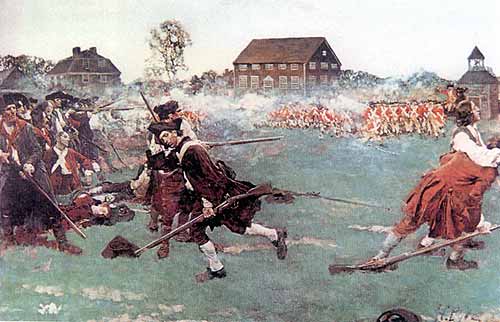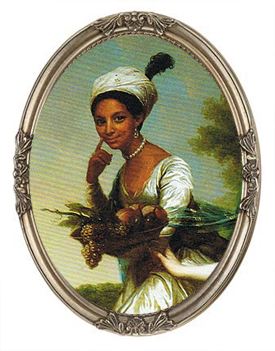Liberty. Liberty is the Root Cause
The Hillsdale 1776 Curriculum | K-12 American Classical Education
Martin Kelly: The Root Causes of the American Revolution (thoughtco.com) Updated February 18, 2020: 
No single event caused the revolution. It was, instead, a series of events that led to the war. Essentially, it began as a disagreement over the way Great Britain governed the colonies and the way the colonies thought they should be treated. Americans felt they deserved all the rights of Englishmen. The British, on the other hand, thought that the colonies were created to be used in ways that best suited the Crown and Parliament. This conflict is embodied in one of the rallying cries of the American Revolution: "No Taxation Without Representation."
In order to understand what led to the rebellion, it's important to look at the mindset of the Founding Fathers. It should also be noted that this mindset was not that of the majority of colonists. There were no pollsters during the American revolution, but it's safe to say its popularity rose and fell over the course of the war. Historian Robert M. Calhoon estimated that only about 40–45% of the free population supported the revolution, while about 15–20% of the free white males remained loyal.
The 18th century is known historically as the age of Enlightenment. It was a period when thinkers, philosophers, statesman, and artists began to question the politics of government, the role of the church, and other fundamental and ethical questions of society as a whole. The period was also known as the Age of Reason, and many colonists followed this new way of thinking.
 |
| "The Past is never dead. It's not even past."--Faulkner |
A number of the revolutionary leaders had studied major writings of the Enlightenment, including those of Thomas Hobbes, John Locke, Jean-Jacques Rousseau, and the Baron de Montesquieu. From these thinkers, the founders gleaned such new political concepts as the social contract, limited government, the consent of the governed, and the separation of powers.
Locke's writings, in particular, struck a chord. His books helped to raise questions about the rights of the governed and the overreach of the British government. They spurred the "republican" ideology that stood up in opposition to those viewed as tyrants.
Men such as Benjamin Franklin and John Adams were also influenced by the teachings of the Puritans and Presbyterians. These teachings included such new radical ideas as the principle that all men are created equal and the belief that a king has no divine rights. Together, these innovative ways of thinking led many in this era to consider it their duty to rebel against laws they viewed as unjust.
 |
| Self-Portrait: Rest in the Vine: "My Hiding Place" by Major John André |
The geography of the colonies also contributed to the revolution. Their distance from Great Britain naturally created a sense of independence that was hard to overcome. Those willing to colonize the new world generally had a strong independent streak with a profound desire for new opportunities and more freedom.
The Proclamation of 1763 played its own role. After the French and Indian War, King George III issued the royal decree that prevented further colonization west of the Appalachian Mountains. The intent was to normalize relations with the Indigenous peoples, many of whom fought with the French.
A number of settlers had purchased land in the now forbidden area or had received land grants. The crown's proclamation was largely ignored as settlers moved anyway and the "Proclamation Line" eventually moved after much lobbying. Despite this concession, the affair left another stain on the relationship between the colonies and Britain.
His Excellency General Washington
SIR,
America's first black poetess
I Have taken the freedom to address your Excellency in the enclosed poem, and entreat your acceptance, though I am not insensible of its inaccuracies. Your being appointed by the Grand Continental Congress to be Generalissimo of the armies of North America,
together with the fame of your virtues, excite sensations not easy to suppress. Your generosity, therefore, I presume, will pardon the attempt. Wishing your Excellency all possible success in the great cause you are so generously engaged in, I am,
Your Excellency’s Most obedient humble servant,
PHILLIS WHEATLEY
Shall I to Washington their praise recite?The Control of Government
Enough thou know'st them in the fields of fight.
Thee, first in place and honors,—we demand
The grace and glory of thy martial band.
Fam'd for thy valour, for thy virtues more,
Hear every tongue thy guardian aid implore!
The existence of colonial legislatures meant that the colonies were in many ways independent of the crown. The legislatures were allowed to levy taxes, muster troops, and pass laws. Over time, these powers became rights in the eyes of many colonists.
The British government had different ideas and attempted to curtail the powers of these newly elected bodies. There were numerous measures designed to ensure the colonial legislatures did not achieve autonomy, although many had nothing to do with the larger British Empire. In the minds of colonists, they were a matter of local concern.
From these small, rebellious legislative bodies that represented the colonists, the future leaders of the United States were born.

Old South Meeting House
Boston, March 6, 1775The Economic Troubles
Even though the British believed in mercantilism, Prime Minister Robert Walpole espoused a view of "salutary neglect." This system was in place from 1607 through 1763, during which the British were lax on enforcement of external trade relations. Walpole believed this enhanced freedom would stimulate commerce.
The French and Indian War led to considerable economic trouble for the British government. Its cost was significant, and the British were determined to make up for the lack of funds. They levied new taxes on the colonists and increased trade regulations. These actions were not well received by the colonists.
New taxes were enforced, including the Sugar Act and the Currency Act, both in 1764. The Sugar Act increased already considerable taxes on molasses and restricted certain export goods to Britain alone. The Currency Act prohibited the printing of money in the colonies, making businesses rely more on the crippled British economy.
Feeling underrepresented, overtaxed, and unable to engage in free trade, the colonists rallied to the slogan, "No Taxation Without Representation." This discontent became very apparent in 1773 with the events that later became known as the Boston Tea Party.
Battles of Lexington and Concord

The British government's presence became increasingly more visible in the years leading to the revolution. British officials and soldiers were given more control over the colonists and this led to widespread corruption.
Among the most glaring of these issues were the "Writs of Assistance." These were general search warrants that gave British soldiers the right to search and seize any property they deemed to be smuggled or illegal goods. Designed to assist the British in enforcing trade laws, these documents allowed British soldiers to enter, search, and seize warehouses, private homes, and ships whenever necessary. However, many abused this power.
In 1761, Boston lawyer James Otis fought for the constitutional rights of the colonists in this matter but lost. The defeat only inflamed the level of defiance and ultimately led to the Fourth Amendment in the U.S. Constitution.
The Third Amendment was also inspired by the overreach of the British government. Forcing colonists to house British soldiers in their homes infuriated the population. It was inconvenient and costly to the colonists, and many also found it a traumatic experience after events like the Boston Massacre in 1770.

The Criminal Justice System
Trade and commerce were overly controlled, the British Army made its presence known, and the local colonial government was limited by a power far across the Atlantic Ocean. If these affronts to the colonists' dignity were not enough to ignite the fires of rebellion, American colonists also had to endure a corrupt justice system.
Political protests became a regular occurrence as these realities set in. In 1769, Alexander McDougall was imprisoned for libel when his work "To the Betrayed Inhabitants of the City and Colony of New York" was published. His imprisonment and the Boston Massacre were just two infamous examples of the measures the British took to crack down on protesters.
/https://public-media.si-cdn.com/filer/General-Marion-631.jpg) |
| The Swamp Fox | History | Smithsonian Magazine More Fox, Less Swamp! |
To make matters even worse, jury trials were replaced with verdicts and punishments handed down directly by colonial judges. Over time, the colonial authorities lost power over this as well because the judges were known to be chosen, paid, and supervised by the British government. The right to a fair trial by a jury of their peers was no longer possible for many colonists.
Mrs. Powel of Philadelphia: “Well, Doctor, what have we got, a republic or a monarchy?”
Dr. Benjamin Franklin: “A republic--if you can keep it.”-- notes of Dr. James McHenry, Maryland delegate to the Constitutional Convention, Sept. 17, 1787
 |
All of these grievances that colonists had with the British government led to the events of the American Revolution. And many of these grievances directly affected what the Founding Fathers wrote into the U.S. Constitution. These constitutional rights and principles reflect the hopes of the Framers that the new American government would not subject their citizens to the same loss of freedoms that the colonists had experienced under Britain's rule.".......
"If he does that, he will be the greatest man in the world."--King George, upon hearing from painter Benjamin West that the victorious General Washington was voluntarily relinquishing power.
It took 12 years from the Proclamation of 1763, ending Walpole's "Salutary Neglect" of the Colonies, to open hostilities with the Royal Occupation Government in 1775 at Lexington & Concord and Bunker Hill.
Things move a lot quicker these days.





No comments:
Post a Comment